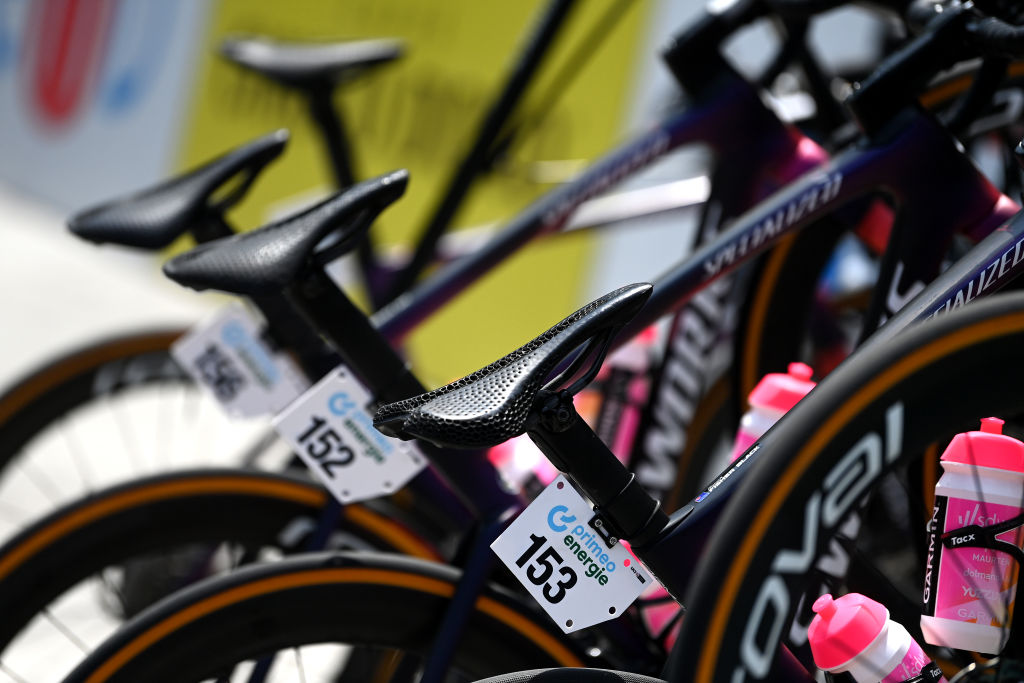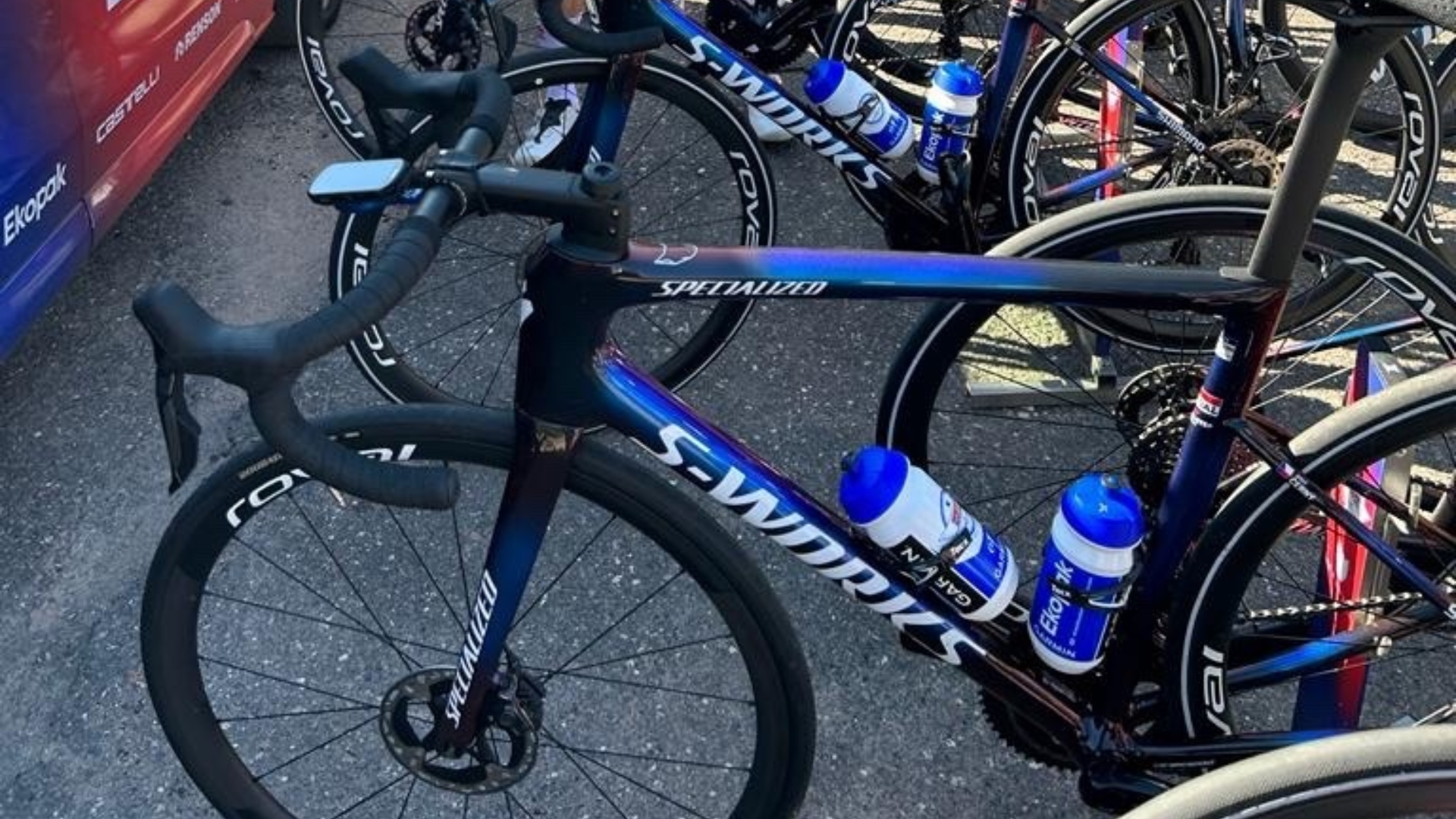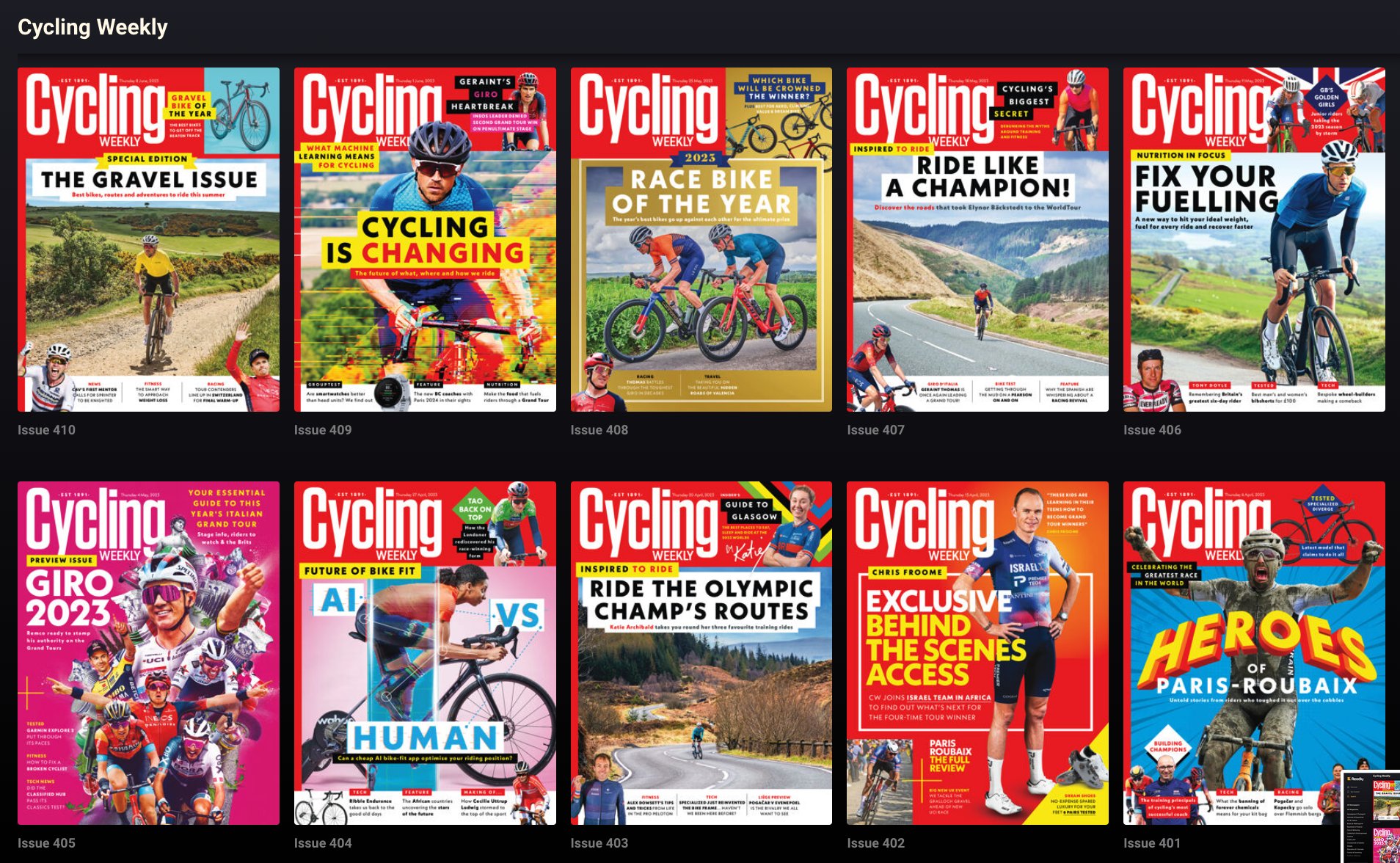Why do cycling websites all publish new bike launches on the same day?
Are embargos part of one big, exclusive, no-consumers-allowed industry party? Well, no.


The latest race content, interviews, features, reviews and expert buying guides, direct to your inbox!
You are now subscribed
Your newsletter sign-up was successful
Imagine you were planning a surprise birthday party for someone special in your life. You hired a band, got a brilliant three-tier cake designed with a little marzipan version of this 'someone special' sitting on top - doughily resplendent in their favourite lycra - and invited all of their best friends. Then the big day rolls around, and it turns out that they'd been filled in on all the details already. No big surprise face, no watery eyes, and actually they'd already eaten the cake and danced to all the band's best tracks.
Bike launches are a little bit like the brand throwing a surprise birthday party. Except, if the surprise gets blown then a load of people have to bust their guts to make up for it. There are very real commercial repercussions too. Small bike shops - many of whom are already feeling the pinch - might even lose money.
Case in point - leaked documents reportedly relating to an apparently new Specialized Tarmac, which would allegedly replace the outgoing SL7 with a model (predictably) called the Tarmac SL8.
The selection of PDFs, seemingly hosted on the Specialized web domain but not confirmed by the brand to be official, made their way onto the WeightWeenies internet forum, before being repurposed in YouTube videos and a since deleted article at RoadCC (more from our colleagues at Cycling News here).
Of course, cycling publications are always going to exercise their right to journalistic snooping - articles along the lines of 'prototype bike spotted at [insert name of race]'; a bike seen as clear as day in the public space is fair game, and we'll fight any PR rep who says otherwise. Ditto insights gleaned from patents, and the general joining of dots of publicly available information (and, once information is on a public forum, it is, indeed, publicly available). That's what we're trained to do, and what our audience expects. But branded documents shared under an embargo are largely respected.

A new looking Tarmac spotted at the Tour de France 2023
Sometimes information gets out early. It happens for lots of reasons - some as innocent as a tired, jet-lagged, perhaps hungover person messing up their time zone conversions. Mistakes happen, that's life.
But for the audience, the potential customers, and the reader, the question perhaps remains: why does it actually matter? Is the bike industry just having one giant 'no consumers allowed' exclusive party? Why do 'embargoes' - a situation where information is provided to relevant parties on the understanding it is not shared or published before a set time - exist?
The latest race content, interviews, features, reviews and expert buying guides, direct to your inbox!
What does Specialized have to say?
Not a lot. We contacted the brand to ask for its take on the leaked documents, but were told in a statement that it would not "comment on the accuracy or authenticity of any information not released officially by Specialized."
The brand added: "we're gratified there is such excitement and energy among riders around potential new products from Specialized, but any product information will be communicated through our official channels.”
The anonymous industry insider
An anonymous industry insider - who does not work for Specialized - talked to us a little more about the way bike launches have worked for them, in the past.
"Bike brands set embargo dates to achieve a 'perfect launch' of a new model," says anon. "A perfect launch is realised when all media channels go live with the story at the same time, creating a spike in awareness. Awareness is also achieved by the brand, their ambassadors and athletes and dealers all pushing the bike out through their socials."
That's the bit you see. But a lot goes on behind the scenes, and that's where it starts to affect more people: "Ideally bikes would also have been sent to dealers pre-launch for them to build and display on the embargoed date and they would have had training on the new bike before it goes on sale too. A perfect launch may also include the brand having a new demo fleet ready to roll out for people to experience."
If all of this doesn't go to plan? "When a bike is leaked it can cause sales of the currently available model to slow as people are made more aware of a replacement model coming soon." Yes, sorry, but brands and retailers are businesses, too. "It also creates confusion in the market as sometimes these leaks occur before dealers have all the information on the new models," he adds.
Fractures can take place between the brand and their dealers, as well "dealers may not be aware of the new bike yet so can be frustrated that the info is available to customers before them," he explains.
The retailer's point of view

We've talked a lot about the perceived effect upon the retailer - but does the little guy at the end of the food chain feel the same? Yes.
Surrey Cycle Works' Dave Farmer told us: "When information about a new bike or product is leaked early it can put us in a very awkward position in a bike shop. Customers visit the shop and ask us about the new bike that they have seen leaked online, but we cannot answer with any accurate information until a certain date. Usually, the information that is leaked is incomplete and inaccurate."
He goes on: "Leaks can spoil and affect sales of the bike through misinformation, and by lessening the impact of a big reveal of the new bike. We work hard with our hard-working suppliers to make a living out of retailing these bikes, and the marketing is a very key part of making the launch a success."
In the instance of a leak, he says, "the launch plan has to be changed, stock deliveries altered and lots of people work late nights to re-do work that they have already done, both at store level and supplier level."
What about magazines and websites?

We've not mentioned, so far, the effect embargo leaks have upon publishers - magazines and websites. So, it's time to get our own tiny violins out.
We're competitive people by nature. If information becomes publicly available and it's of interest, it's a story. Either we get to it first, or our competitor does. Suddenly, everyone else has to clamber to slap-dash the story they'd intended to spend a lovely Friday morning lovingly handcrafting over an Aeropress coffee in just the right mug. And frankly, we'd perhaps rather be out getting some miles in on that new bike so we can tell you - in detail, and with proper thought - what we think of it.
Michelle Arthurs-Brennan the Editor of Cycling Weekly website. An NCTJ qualified traditional journalist by trade, Michelle began her career working for local newspapers. She's worked within the cycling industry since 2012, and joined the Cycling Weekly team in 2017, having previously been Editor at Total Women's Cycling. Prior to welcoming her first daughter in 2022, Michelle raced on the road, track, and in time trials, and still rides as much as she can - albeit a fair proportion indoors, for now.
Michelle is on maternity leave from April 2025 until spring 2026.
